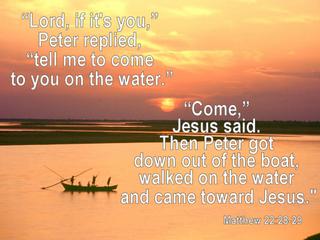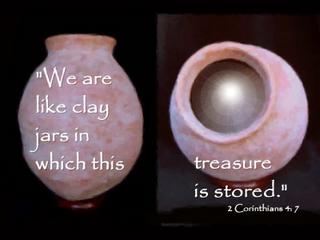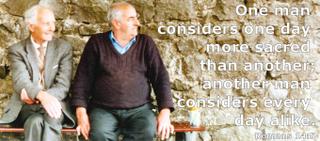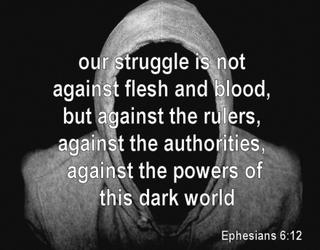Originally posted by me @
plchurchtj.blogspot.com on May 9, 2005.
I’ve been trying to follow discourse on the emerging church. It seems to be a bit of a moving target and it takes a lot of blog time to just skim the surface. But an examination of the strengths and weaknesses from Frank Viola @
www.opensourcetheology.net caught my eye. Especially, what he states as the primary weakness –
The emerging church phenomenon has wonderfully articulated some of the major flaws of the modern church, yet like all of its predecessors, it has failed to identify and take dead aim at one of the chief roots of most of its ills.
I firmly believe that the taproot of most of the problems that plague the church in modernity is the clergy system. To put a finer point on it, Protestant Christians are addicted to the modern pastoral office. The pastor is the all-purpose religious professional in the modern Protestant church, both evangelical and mainline.
Please note that my critique is not an attack on pastors as people. Most pastors in the emerging church are gifted Christians who have a heart for the Lord and a genuine love for His people. It is the modern pastoral office and role that I believe is profoundly flawed, and few of us have ever questioned it.
Let me unpack that a bit. My experience in this country and overseas over the last seventeen years has yielded one immovable conclusion: God’s people can engage in high-talk about community life, Body functioning, and Body life, but unless the modern pastoral role is utterly abandoned in a given church, God’s people will never be unleashed to function in freedom under the Headship of Jesus Christ. I have had pastors vow to me that they were the exception. However, upon visiting their congregations, it was evident that the people did not know the first thing about functioning as a Body on their own. Neither were they given any practical tools on knowing the Lord intimately and living by His life. The reason is that the flaws of the modern pastoral role are actually built into the role itself.
The pastor, by his mere presence, causes an unhealthy dependence upon himself for ministry, direction, and guidance. Thus, as long as he hangs around delivering sermons, the people in the church to which he belongs will never be fully set free to function on their own in a church meeting setting. Further, the pastoral office typically destroys those who populate it. Jesus Christ never intended for anyone to shoulder that kind of enormous responsibility and power.Well that is a lot to digest, but for some reason, I keep thinking about this observation of pastoral leadership. If you have been listening to Pastor John and Deb describe the new ministry structure: the fractals and leadership models, then you know Peace is headed toward empowered leaders and teams. It is an exciting time, but I think it will also be very challenging. I believe it is so difficult for even the best-intentioned pastors to equip his/her members because of the way we, the lay people, grew up learning.
I am by no means a Montessori expert, but having experienced vicariously the results of such an education on my son, I can begin to appreciate how this “radical” approach to learning could be helpful in the church. Here are some characteristics of a Montessori education and how I think they could relate to church.
Stages of DevelopmentMontessori recognizes and values the unique needs of children at different developmental stages and integrates this understanding into the educational environment. The community of the classroom provides a safe and secure place for children to develop self-esteem and confidence, while they learn to be responsible and caring members of society.
Church leaders recognize people are at different stages in their faith journey and provide appropriate building blocks for growing faith. The church provides a safe and secure environment for exploring faith.
Child CenteredThe Montessori approach challenges the conventional methodologies wherein teachers 'fill' children with knowledge. The Montessori teacher acts as a guide, an inspiration and a remover of obstacles, so children can follow their natural inclinations to explore and grow.
Church leaders act as a guide, an inspiration and a remover of obstacles so that members can follow their natural inclinations to explore and grow their faith.
IndependenceMontessori philosophy emphasizes functional and intellectual independence as crucial to human development. Montessori encourages children, from the earliest ages, to use their practical and intellectual skills to meet their own everyday needs and pursue academic learning. Montessori communities promote self-sufficiency in social relationships as well; providing tools and language for children to solve conflicts and negotiate peacefully.
Church leaders encourage members to use their skills to meet the needs of the church. The church community promotes and encourages self-sufficiency.
Process versus ProductMontessori utilizes a guided discovery approach to learning. Montessori guides (teachers) present lessons to children as 'keys' to open the door to learning. Learning outcomes come about naturally, often spontaneously, sparked by student-driven interest. Montessori allows the process of learning to unfold authentically until the child is ready to demonstrate mastery.
Church leaders allow people to explore their faith authentically in a non-judgmental environment.
Skills for LifeMontessori emphasizes learning through all five senses, not just though listening, watching or reading. Learning is an exciting process of discovery, leading to concentration, motivation self-discipline and a quest for knowledge that lasts a lifetime. Montessori schools group children in different age groups, forming communities in which the older children mentor the younger children
The church community forms small groups where learning and mentoring take place.




































